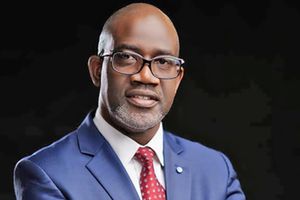Religious leaders urged not to be intimidated from speaking the truth

TEC secretary general, Dr Charles Kitima
What you need to know:
The conference was attended by representatives from the Tanzania Episcopal Conference (TEC), the Christian Council of Tanzania (CCT), and the Muslim Council of Tanzania (Bakwata), providing a platform for religious leaders to discuss critical issues affecting society.
Dar es Salaam. Religious leaders have been urged not to be discouraged by accusations of political interference, which are often used to deter them from speaking out on matters of justice and social issues.
The clerics were further encouraged to address societal matters openly and truthfully, as they hold a high level of public trust and should not fear intimidation from politicians.
The call was made by various stakeholders during the Interfaith Approach Now and Beyond conference, which brought together religious leaders, scholars, and civil society organisations from across the country.
The conference was attended by representatives from the Tanzania Episcopal Conference (TEC), the Christian Council of Tanzania (CCT), and the Muslim Council of Tanzania (Bakwata), providing a platform for religious leaders to discuss critical issues affecting society.
TEC secretary general, Dr Charles Kitima, speaking at the conference, remarked that accusations of political interference are frequently used to deter religious leaders from advocating for justice and addressing social issues.
“As religious leaders, we teach people to stand up for the truth at any cost, so let’s not be intimidated,” Dr Kitima declared at the event, which was organised by the Norwegian Church Aid (NCA).
He emphasised that Tanzanians regard religious leaders as a refuge, turning to them for guidance on personal and social challenges.
He also stressed the importance of capacity-building support for civil society organisations to strengthen their role in providing civic education.
“We need to work together to help citizens,” he said, adding that religious leaders should fulfil their responsibilities, and civil society organisations must work diligently to support Tanzanians.
Retired Controller and Auditor General (CAG), Mr Ludovick Utouh, echoed the sentiments, urging for a political landscape grounded in truth rather than divisive rhetoric that threatens national peace.
He referred to the recent US election, highlighting how Vice President Kamala Harris graciously conceded defeat, enabling the country to move forward peacefully.
Retired University of Dar es Salaam lecturer, Dr Azaveri Lwaitama, called on religious leaders to push for a new constitution, noting its absence as a root cause of persistent societal issues.
He suggested the creation of a booklet to educate citizens on the new constitution and to involve them in the process, which he said has been stalled by politicians protecting their interests.
“We need a new constitution because power in this country is concentrated within a small group, which undermines the development of others,” Dr Lwaitama said.
“The interfaith forum should advocate for this, drawing on Justice Warioba’s draft and input from the Justice Nyalali and Justice Kisanga commissions,” he said.
Bakwata secretary general, Mr Nuhu Mruma, highlighted the critical role of the multi-religious forum in addressing societal divisions and fostering peace and unity across Tanzania’s diverse communities.
“As religious leaders, we work to remove obstacles that divide society, promoting equality,” Mr Mruma said at the meeting.





